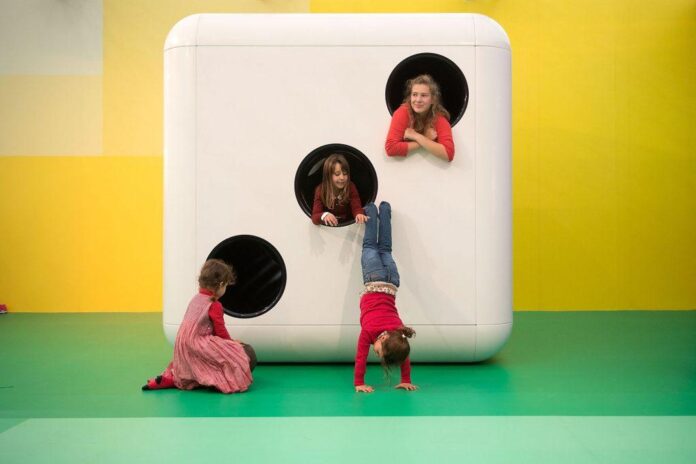Want to raise kind, generous kids? Take them to the art museum!
The feeling of awe inspired by great art, it turns out, can be a humbling experience that encourages kids to help others, rather than focusing on their own needs.
“In encounters with vast mysteries, awe makes individuals feel small, humble, and less entitled, thereby shifting their attention toward the needs and concerns of others rather than the self,” read a new study in .
Lead author Eftychia Stamkou, of the department of psychology at the University of Amsterdam, decided to investigate the effects of experiencing awe on children after realizing the feeling had been extensively studied in adults, where it led to less self-entitlement and greater generosity. Stamkou’s study, which included 159 volunteers aged 8 to 13, suggests the results are much the same for kids, reports Inc.
Participants watched short movie clips designed to elicit either joy, awe, or a neutral response—the wine-drinking scene from , a clip from in which a character turns into a seal, and an instructional video about painting walls or making coffee, respectively.

A child looks at a giant rabbit lantern at the China National Arts and Crafts Museum and China Intangible Cultural Heritage Museum ahead of Chinese New Year, the Year of the Rabbit on January 14, 2023 in Beijing, China. Photo by VCG/VCG via Getty Images.
Researchers then asked the children to complete an easy but time-consuming task of counting items for a food drive for families in need, or, instead, if they would be willing to donate the art museum tickets or chocolate snacks they were supposed to receive for participating in the study to a refugee family.
“Children who watched the awe-inspiring video chose to count 50 percent more items for the food drive than children who watched the joy-inspiring clip and more than twice as many items as children who watched the neutral clip. Children in the awe-inspiring condition were also two to three times more likely to donate their study rewards than children in the joyful or neutral conditions,” the Association for Psychological Science blog reported.
“Awe, an aesthetic and moral emotion, helps societies flourish by making children more generous,” the study claimed. “Our research is the first to demonstrate that awe-eliciting art can spark prosociality in children.”

A girl attends the exhibition “Pipilotti Rist : Your Brain to Me, My Brain to You”, a new large-scale, site-specific installation by Swiss artist Pipilotti Rist at the National Museum of Qatar in Doha, on November 18, 2022. Photo by Gabriel Bouys/AFP via Getty Images.
Though the researchers didn’t use famous paintings or sculptures to evoke awe in the study, they did note that their findings could help prove that art can offer benefits to society as a whole, not just to the individual.
If awe-inspiring art really does encourage people to act more selflessly, it would counter “the still-common perception that art has hardly any real-world consequences on human behavior because art experiences are bracketed in imaginary, non-real worlds,” read the study. “Our research provides concrete evidence for art’s behavioral consequences on outcomes that promote other people’s well-being.”

























